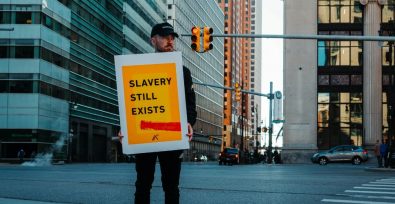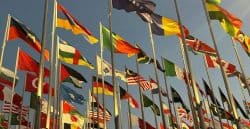A joint investigation exposed a global organized network that was exploiting impoverished Kenyans for their organs. Wealthy recipients abroad, who didn’t know donors were illegally being paid or coerced, paid Mediheal Group of Hospitals thousands of dollars for the lifesaving organ “donations.” Now, thanks to the investigation and public pressure, a 90-day public inquiry has been opened into the alleged illegal organ transplants and trafficking, reports Eastleigh Voice. A parliamentary committee will examine claims of malpractice and ethical breaches in kidney transplant services at the facility.
Victimless crime…or is it?
Organ trafficking thrives on the global shortage of legal donors. Unscrupulous actors use deception and the promise of large payouts to convince desperate people in places like Kenya, Indonesia and Nepal to sign away their organs. And despite domestic and international laws forbidding their sale, enforcement of organ trafficking remains weak. Propped up and protected by corruption and medical complicity, it’s a thriving illicit industry with hospitals like Mediheal at the top.
Speaking about the power structure, Jamal Osman, Africa Correspondent for 4 News said:
“Below (hospitals) are local brokers and recruiters, many of whom have also sold their own kidneys. It’s essentially a pyramid. They recruit their friends, and if the friend agrees, the recruiter earns a few hundred pounds. That’s enough to feed a family, and enough to tempt another.”
Comparatively, Jamal says the money donors get is enough to lure them in. But it pales in comparison to how much those closer to the top of the pyramid make. According to Jamal, patients in wealthy countries sometimes pay over $100,000 for a kidney. Next to that, the $2,000 given to the desperate organ donor goes beyond just unfairness. Advocates say profiteering through the sale of organs is a new form of ‘body colonialism’. Those from wealthy, powerful countries are extracting what they need from poor people in developing countries.
Suspicious patterns and cash payments
Mediheal is owned by Indian-born businessman and politician. And questions of corruption have already been raised around this case. A 2023 government investigation revealed suspicious patterns in Mediheal’s business practices. Donors and recipients were frequently unrelated, and many procedures involved large cash payments. Both are warning signs of potential organ trafficking. But one of the biggest challenges to stopping organ trafficking overall is that it’s such a lucrative business. Indeed, The Exodus Road says it’s a US$1.7 billion industry. And traffickers know that, specifically targeting and preying on those who are at rock bottom.
Zezen Zaenal Mutaqin Universitas Islam Internasional Indonesia (UIII) writing for East Asia Forum said:
“Traffickers roam slums and villages in Africa, Asia, Latin America and Eastern Europe to lure impoverished people into selling their organs to meet demand from rich countries.”
The new investigation will specifically look at allegations that Mediheal has been removing kidneys from impoverished Kenyans. Apparently Mediheal has been paying donors around $2,000 and selling the kidneys abroad for as much as $25,000. Mediheal has a well-known reputation in low-income communities. And with $2,000 on the table young men walk in regularly asking to sell their kidneys. Then, without being told about the possible long-term health issues and sometimes without the paperwork they are asked to sign being in a language they can read, they walk into the operating room.
Help push for better legislation and enforcement
A crime researcher based in Nairobi who spoke with numerous young men that fell for the lure of selling their kidneys said many now suffer from chronic health issues, depression, and trauma. “I don’t think they’re going to reach 60,” he warned.
Osman says:
“This is a cycle driven by need – one human’s desperation to live, and another’s desperation to escape poverty. But when survival is for sale, who really profits?”
Freedom United stands with those who reject this new form of body colonialism and the illegal harvesting of the organs of vulnerable populations under the guise of a “choice”. Stand with us and help push countries around the globe to step up and tackle the often-overlooked crimes of human trafficking for the purpose of organ removal and organ trafficking.








Freedom United is interested in hearing from our community and welcomes relevant, informed comments, advice, and insights that advance the conversation around our campaigns and advocacy. We value inclusivity and respect within our community. To be approved, your comments should be civil.